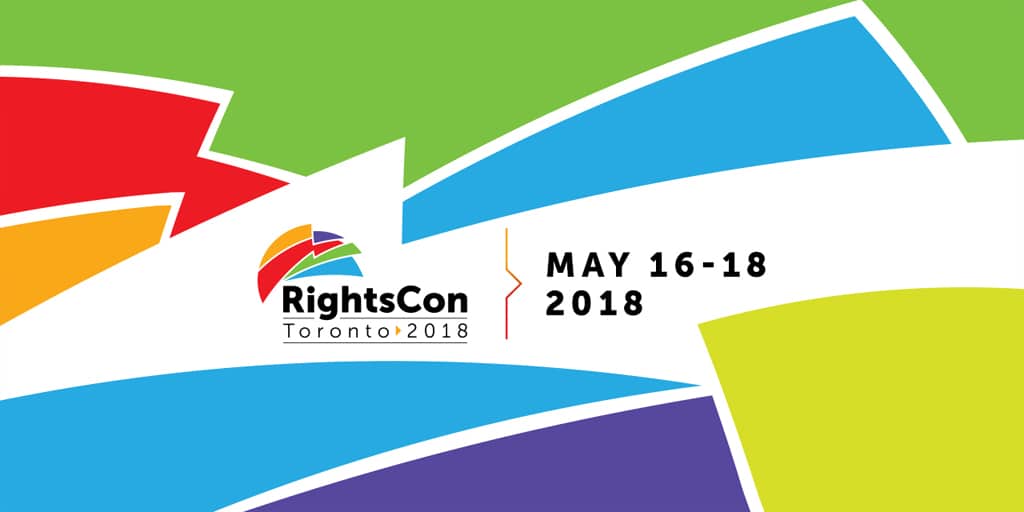In partnership with RIWI, a Toronto-based technology firm, we’re announcing a new project: the Global Internet Sentiment Survey. The project was born out of an identified need to better understand how people around the world think about and engage with the internet, especially given its increasingly prominent role in many of our lives. Together with RIWI, our goal is to help the RightsCon community understand public sentiment toward issues that are central to our work on human rights in the digital age.
Taking place next week (May 16-18) in Toronto, Canada, RightsCon is Access Now’s annual summit on the intersection of human rights and technology, and it has grown to gather an estimated 2,000 participants from across the globe.
The Global Internet Sentiment Survey
Over the course of April 2018, using RIWI’s proprietary survey technology, we did a preliminary polling of internet users in 10 countries, gathering the opinions of more than 30,000 people around the world. We asked eight questions regarding three key issues in our community’s work — access, safety, and trust — with the aim of presenting the initial findings at RightsCon. These questions included asking whether individuals felt safe to express themselves online, whether they trusted the information they consume online (and from which sources), and whether they believe access to the internet is a fundamental human right. No personally identifiable information is collected, stored, or transferred in the implementation of this survey. You can read more about the technology and methodology below.
The data presented in this post is meant to provide a snapshot of the insights we’ve already gleaned from the survey data, and to help show the potential of using data on public sentiment to contribute to work on human rights and technology. This survey — and future iterations of it — could have value for organizations that are working for a free and open internet worldwide, giving them a foundation for understanding how people in countries across the globe perceive the internet and its impact on human rights.
This is just the beginning, and we see this as a starting point for a larger conversation. Our findings here are not a final product, and we hope to work alongside other RightsCon community members to interpret data, and make use of the information in our collective work.
Why is this survey important?
Each year, RightsCon convenes a global community, and this year, we’ve seen the relevance of our collective work around the world increase, reflected by the size of our program. Together with over 2,000 participants from more than 115 countries, we will workshop solutions for the critical issues that we face, from the development of ethical frameworks for artificial intelligence and machine learning to the safety, security, and protection of our data in smart city initiatives.
To do this work, we need a better understanding of the opportunities and challenges that citizens face. This is particularly important when it can be difficult, and at times impossible, for individuals to freely and safely share their input and experience. Those voices need to be heard.
A first look at key findings
For this initial survey, we got responses from: France, the United States, Tunisia, Canada, Russia, Brazil, Turkey, China, India, and Nigeria. Here is a breakdown of key insights in three main categories: access, safety, and trust on the internet.




Why this survey and what can this data do?
At RightsCon, we hope this information can help start important conversations, encouraging us to think more deeply about how the public perceives the internet, as well as how we represent, communicate with, and integrate the insights of the communities we work with.
Governments, businesses, and organizations working to protect human rights in particular can benefit from this “public-voice” research, especially as it relates to policy choices and the continuously evolving digital space. Post-RightsCon, we envision this information helping to inform the development of initiatives and policies that affect populations that are underrepresented in research using traditional methodologies. Public-voice research can help with inclusion. Increasing the capacity of citizens to effectively express their views is paramount to improving government responsiveness, transparency, and accountability.
What’s next?
If you or your organization are interested in getting involved, we’d like to work with you to determine the scope of this project moving forward. Simply send us an email at [email protected].
Our survey partner and methodology
RIWI (www.riwi.com) is a global survey-technology and sentiment-analysis firm based in Toronto. RIWI gathers citizen opinion data, and accelerates engagement initiatives around the world using its proprietary technology, specializing particularly in highly stigmatized and politically sensitive issues such as global LGBTI rights (117,000 respondents in 77 countries in 2017); Open Government (65 countries); the role of women and girls across the Middle East (30,000 respondents in 17 countries); Syrian refugees in Turkey; public support for NGOs in Kenya; and others.
To date, RIWI has surveyed over 1.2 billion people in over 60 languages, and in every country in the world, specializing in public-perception data collection of highly stigmatized issues from Web users in every country and territory in the world.
RIWI technology allows for the rapid capture and assessment of large samples of broad, truly random opinion data. More specifically, it delivers anonymous opt-in surveys to random Web users who are surfing online by typing inactive, non-trademarked websites directly into the Web address bar (i.e. URL) and, further, ensures that the exposed survey audiences are representative of the Web-using geography of interest. When these users type in websites that are vacant or no longer exist, RIWI invites these inbound random visitors, filtered through a series of proprietary algorithms, to participate in a language-appropriate survey for no incentives. RIWI’s global survey platform thus enables rapid and non-conditioned survey response data from any random respondent encounter. No personally identifiable information is collected, stored, or transferred.
